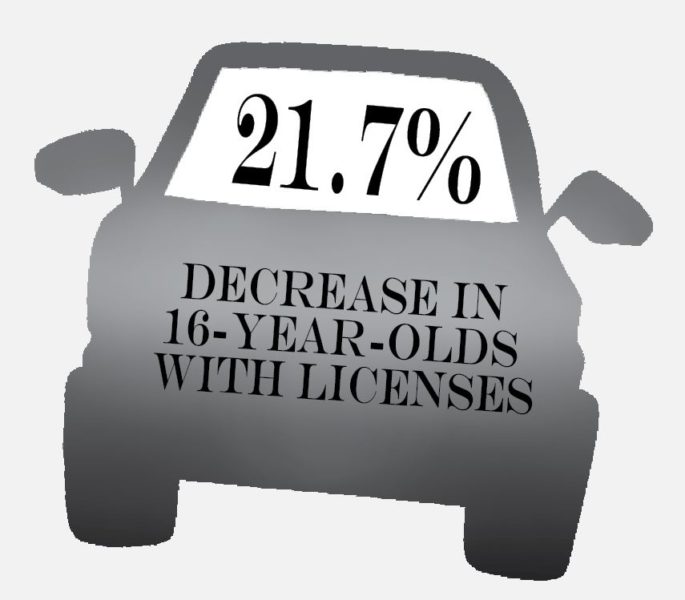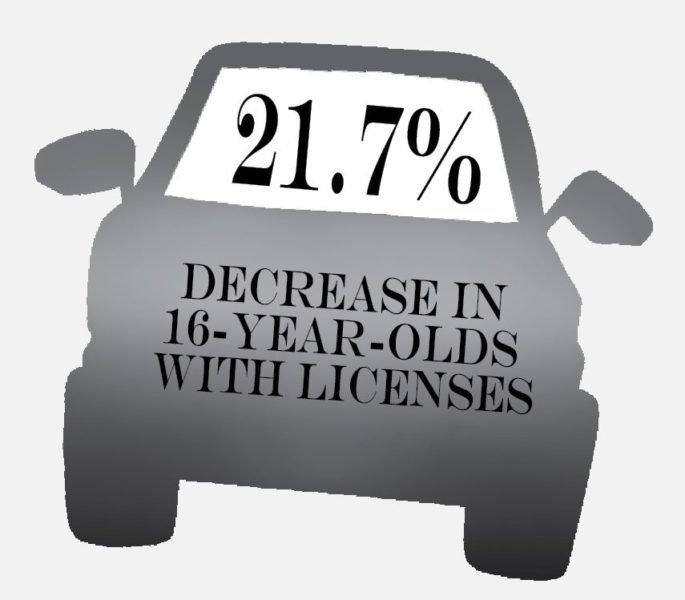

An often exciting milestone in the life of a typical American teenager is learning to drive. However, as modern life changes and technology becomes more advanced, many teens today choose to start driving later, and Aragon’s students are no exception.
According to the University of Michigan Transportation Research Institute, the percentage of 16-year-olds with their license have decreased from 46.2% in 1983 to 24.5% in 2014.
“The major factors that kept me from wanting to drive were mostly just having that responsibility,” said junior Franco Picache. “Not having a car and taking care of a car [also prevent me from driving]. When you want to go somewhere, [your parents] expect you to drive there, get the groceries, and stuff like that. It’s just another responsibility that I have to take on.”
Picache elaborates on how driving does not align with his current objectives.
“I feel like it’s a privilege, in my opinion,” Picache said. “Because my parents obviously want me to drive, I wanted to get my license just to have it, just in case, but driving isn’t my goal.”
Rather than driving himself, Picache opts to use services like Uber and Lyft twice a week on average.
“I have less responsibility when it comes to [using Uber because] I just get picked up. I don’t have to care about the stresses of road rage,” Picache said.
Senior Lindsey Stevens, who has been driving since her junior year, understands the lack of enthusiasm Picache has when it comes to driving.
“I wasn’t really that excited about driving,” Stevens said. “I was sort of like, ‘Oh, I can drive now.’”
English teacher and parent James Daniel provided an insight on how the desire to drive has changed since his generation.
“When I was a kid, there was no insta-communication,” Daniel said. “The only way you could see your friends was by bicycle or car, so once you got a car … it meant instant independence.”
Daniel has noticed that other parents are having struggles getting their own child to start driving.
“[For] a few of Hunter’s friends, their parents are [slightly] frustrated because they’re like, ‘You wanna drive?’ and [their kids are] like ‘Nope,’” Daniel said. “One guy’s permit is about to expire, and they’re not interested.”
Daniel ponders the future of driving based on the advance of modern technology.
“With the Uber and the Lyft, and regular mass transit, [people will] be forced to take advantage of that. There’s those driverless cars and stuff like that… But I guess it has to do with the rise of technology,” Daniel said. “[There are] people [who] don’t have to leave their house to go to work. Maybe that’ll all fit in with that idea that they don’t need to commute ever. Why [would] they need a license?”
